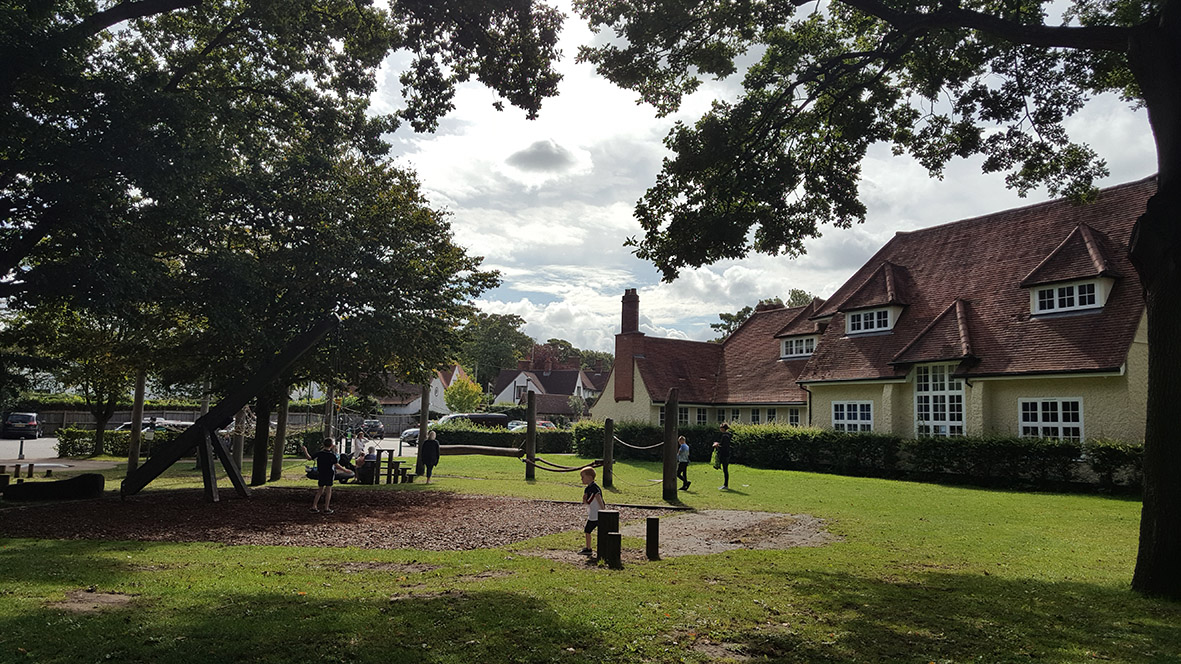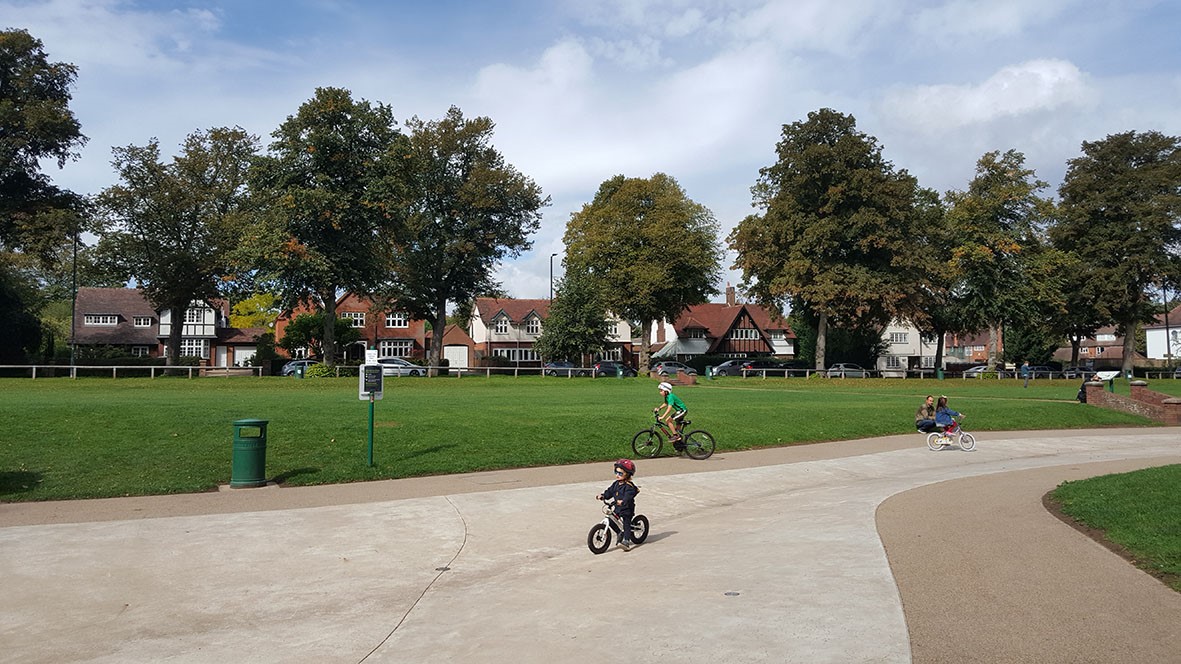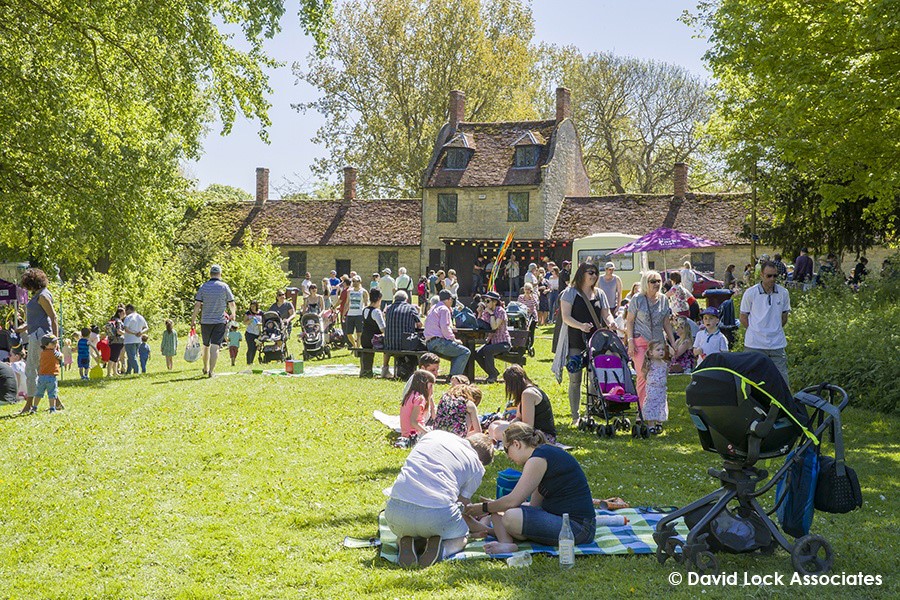by RTPI President Wei Yang FRTPI
To celebrate UN International Day of Families on 15 May, I had the privilege of visiting Letchworth Garden City and Milton Keynes as part of a joint Presidential visit to the East of England and South East regions.
Thanks to digital technology, it was a unique opportunity to learn how Letchworth (the first Garden City in the world, founded by Ebenezer Howard in 1903) and Milton Keynes (designated in 1967) have stood the test of time.
I strongly recommend everyone watch the insightful presentations given by David Ames and Stuart Sapsford from Letchworth Garden City Heritage Foundation and Heather Pugh from David Lock Associates. The follow-on Q&A discussions led by RTPI Young Planners Beth Jones, Alexia Kallini, Suzi Green and Graham Wilson were thought-provoking too.
Letchworth Garden City
Letchworth Garden City inspires me every time I visit - even on a virtual tour! Now home to 35,000 residents, it provides 15,000 job opportunities and continues to meet modern needs. It is the only settlement at this scale in the whole world which truly applies Howard’s Garden City principles.

As emphasised by David Ames, Executive Director of Stewardship and Development, the Garden City principles need to be understood in their entirety. The Garden City is not about a particular style of design – it’s about creating great places where people want to live, where there are affordable homes, jobs, leisure opportunities and access to countryside and open space.
In particular, Howard’s land value capture concept has proved to be highly successful. After almost 120 years, the £7-7.5 million a year surplus generated from the Garden City estate allows the Letchworth Garden City Heritage Foundation – successor to the original First Garden City Limited – to reinvest the surplus for community benefit in addition to the statutory services.

The pandemic has highlighted the importance of providing those additional services. Stuart Sapsford, Executive Director of Communities, Culture & Heritage, gave an in-depth explanation of how the Garden City has responded to the pandemic and has been using land value capture to support families through a wide range of initiatives and financial supports.
Milton Keynes
Although Milton Keynes is normally classified as a New Town, it employed many Garden City principles in its planning. Heather Pugh, a Partner at David Lock Associates, illustrated how Milton Keynes as a new planned settlement has contributed to family life and how it has evolved to adapt to new challenges in the 21st Century.

Heather talked through Milton Keynes’ original aims of the New Town for families, the context today, and how planning activity in Milton Keynes could support family life for the future.
Milton Keynes reached its original planned population of 250,000 people in 2012. The city-wide strategic landscape framework and green infrastructure have matured nicely and are well maintained by The Parks Trust – another world-class example of land value capture.
 The flexibility built into the original masterplan enabled the city to adjust to technological and social change over the last 50 years, and also provided great advantages for adaptability as the city looks to the future.
The flexibility built into the original masterplan enabled the city to adjust to technological and social change over the last 50 years, and also provided great advantages for adaptability as the city looks to the future.
Now the city as a whole is looking beyond its boundaries for expansion - the Milton Keynes Strategy for 2050 is now adopted as corporate policy. Families are at the heart of ‘Seven Big Ambitions’ in the strategy to make sure the growth is primarily about people.
Our future new settlements
I am grateful to the RTPI East of England and South East regional committees for their creative organisation of the joint visit, and thanks to the regional chairs Charlotte Burton and Simon Taylor for hosting the visit.
Although planned in different times, for different contexts and scales, the Garden City principles worked for both Letchworth and Milton Keynes – they are places with long-term visions, they are highly innovative and welcoming to all communities, they co-exist with nature and they have evolved as modern cities in the 21st century.
Looking to the future, it’s important for us to remember what we plan new settlements for – we plan them for people. We are creating places which people can call their home.
Land value capture, community governance and long-term stewardship are exemplary ways of creating truly sustainable communities for public benefit. Whether the settlements are called Garden Cities or not, I hope these principles can be considered in the future planning of all new communities.


